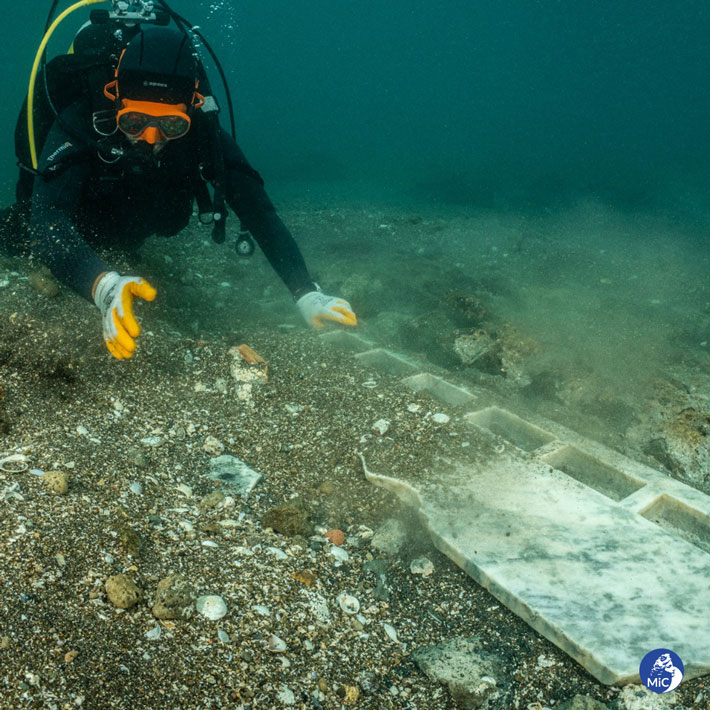 NAPLES, ITALY—The Art Newspaper reports that two marble altars were found among the ruins of the now submerged ancient Roman port city of Puteoli in the Bay of Naples. Dating to the first half of the first century A.D., the altars were part of the Temple of the Nabataeans, whose exact location was unknown until this discovery. The Nabataeans were a Semitic people who established a powerful kingdom at Petra, in the Arabian Desert, in the second century B.C. Some 2,000 years ago, they built a trading outpost at Puteoli that became the largest port in the Mediterranean during the Roman period. Italian culture minister Gennaro Sangiuliano said that the discovery is a testament to the richness of cultural, religious, and economic exchange in the ancient Mediterranean. Three other altar fragments from the temple have been identified since the eighteenth century. For more on the Nabataeans, go to "Letter from Jordan: Beyond Petra."
NAPLES, ITALY—The Art Newspaper reports that two marble altars were found among the ruins of the now submerged ancient Roman port city of Puteoli in the Bay of Naples. Dating to the first half of the first century A.D., the altars were part of the Temple of the Nabataeans, whose exact location was unknown until this discovery. The Nabataeans were a Semitic people who established a powerful kingdom at Petra, in the Arabian Desert, in the second century B.C. Some 2,000 years ago, they built a trading outpost at Puteoli that became the largest port in the Mediterranean during the Roman period. Italian culture minister Gennaro Sangiuliano said that the discovery is a testament to the richness of cultural, religious, and economic exchange in the ancient Mediterranean. Three other altar fragments from the temple have been identified since the eighteenth century. For more on the Nabataeans, go to "Letter from Jordan: Beyond Petra."
Underwater Temple Ruins Discovered in Bay of Naples
